Solutions
December 16, 2016
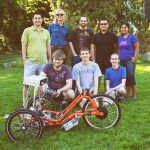
Self-driving trike
Researchers at UW Bothell are working on a self-driving tricycle.
December 13, 2016
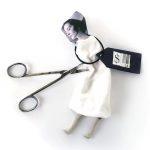
On the mend
No matter the fate of the Affordable Care Act, UW faculty and alumni continue to seek remedies for our health care system.
December 12, 2016

Social mourning
Two UW sociology researchers are studying how people tweet about death, analyzing feeds of deceased Twitter users.
September 1, 2016

Deep data
In April 2015, the Axial Seamount, an active underwater volcano about 300 miles off the coast of Oregon, erupted. For the first time ever, scientists, engineers and students from the UW and around the world could watch it in real time thanks to an elaborate array of sensors they installed a year earlier.
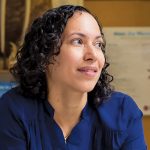
The batwoman
Forget the silly myths about vampires. Sharlene Santana discovered that the role of bats in the environment is underrated. And most don't want to bite you.
June 1, 2016

Nordic Noir
Scandinavian Studies Professor Andy Nestingen shares his research into the genre and how it contrasts with American Noir’s heroes and villains.

Urban evolution
The UW's Urban Ecology Research Lab studies how species change in response to cities.
March 1, 2016
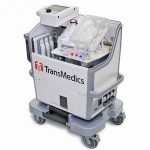
Test driven
Here, we present the tales of two clinical trials of technology that one day could alleviate suffering and improve lives for the hundreds of thousands of people suffering from severe heart problems and kidney failure.
December 1, 2015
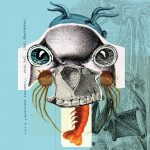
'Scarface' found
A team of scientists has identified a new species of “pre-mammal” based on fossils unearthed in Zambia’s Luangwa Basin in 2009. Its discoverers include Christian Sidor, UW professor of biology and curator of vertebrate paleontology at the Burke Museum.

Sweet gratitude
Gratitude is universally considered a social good—the warm feeling that results from a kindness received. But it can have a dark side: It can impel us to eat more sweets, according to new research by Ann Schlosser, professor of marketing at the Foster School of Business.
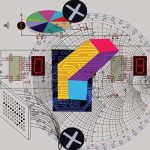
Tech that knows
A new wearable technology developed at the UW called MagnifiSense can detect what devices and vehicles the user interacts with.
September 1, 2015

High volume
Recordings by current and former UW researchers in fjords show that melting at glacier edges in the narrow rock-edged canyons are some of the noisiest places in the sea.

Cellphone guilt
A new UW study finds that cellphone use at playgrounds is a significant source of parental guilt, as well as a powerful distraction when children try to get caregivers’ attention.
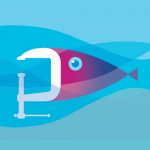
Cling like a fish
Scooting around in the shallow, coastal waters of Puget Sound is one of the world’s best suction cups. It’s called the Northern clingfish, and its small, finger-sized body uses suction forces to hold up to 150 times its own body weight.
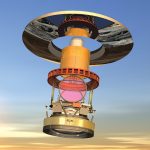
Space explorers
Fifty years is no time at all for a universe that dates back 13.8 billion. But for those who study the sky, the past five decades have changed everything.
June 1, 2015

Blood stancher
An injectable polymer could keep soldiers and trauma patients from bleeding to death.

Mindfulness
Whether it’s coping with college or taming an addiction, mindfulness has real medical and practical benefits, and it’s something UW researchers have been exploring for decades.

A startling find
Since she was a student in pharmacy school, Shelly Gray has felt a strong connection to the situation many elderly patients find themselves in: “I was struck by how many different medications older adults are taking, as well as their struggle with trying to keep those medications straight,” she recalls.

Hazy on the law
More than two years after Washington legalized marijuana, parents and teens may be hazy on the specifics of the law.
